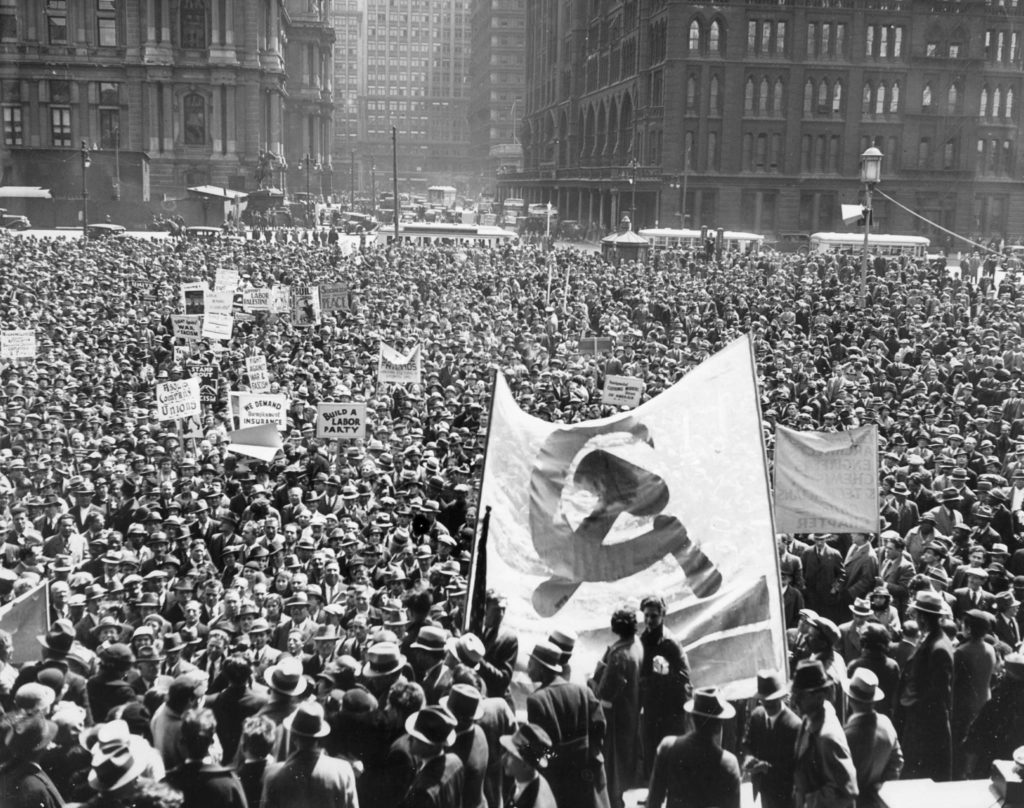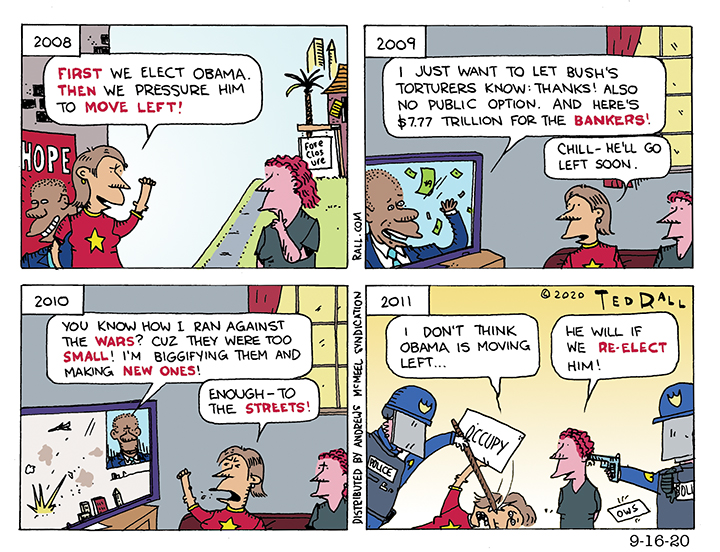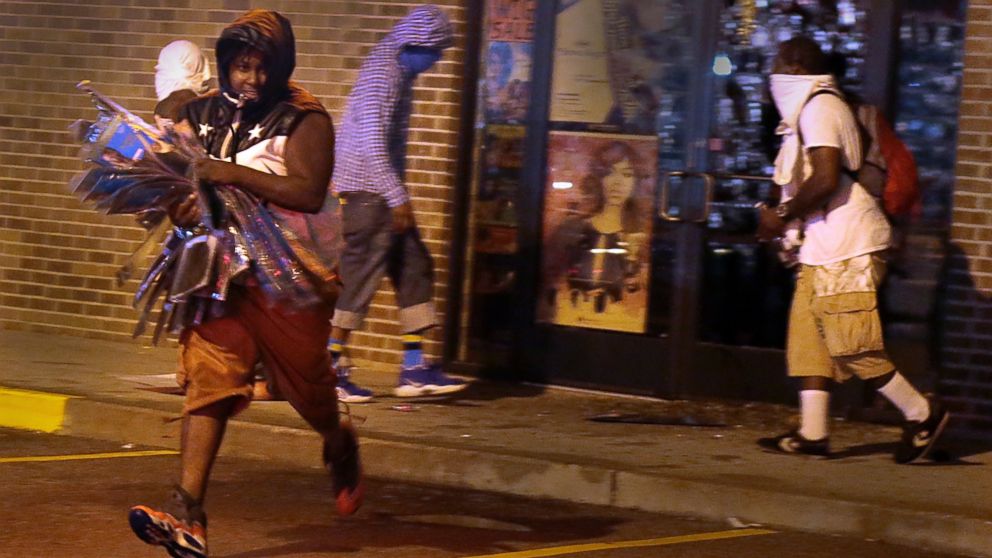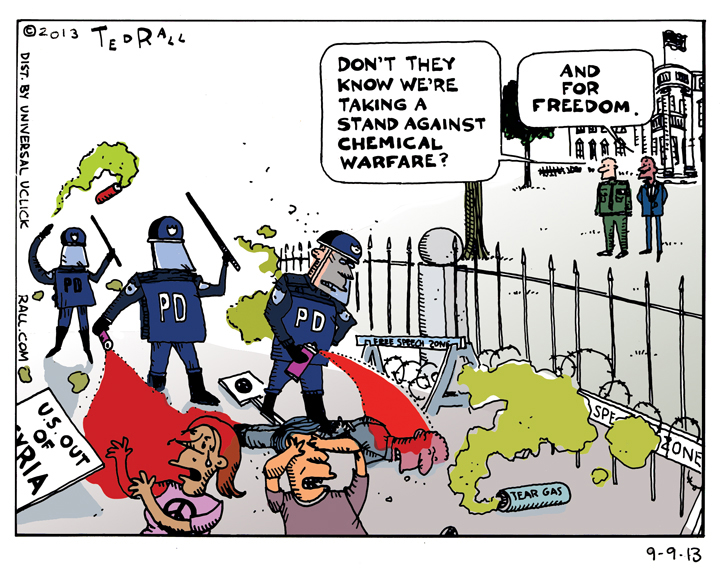As a leftist, I’m heartened by the reactions of the citizens of Minneapolis and its neighboring municipalities to ICE’s assault against their non-citizen neighbors. The killing of Renee Good makes the risk of confronting illiterate armed paramilitaries hopped up on aggression-fueling steroids brutally clear. Plus, this is Minnesota in January. Mixing it up with government goons in the tundra isn’t a weekend walk in the park, or a performative, city-licensed, thrice-yearly “No Kings” stroll down Fifth Avenue.
I was similarly pleased by previous spasms of protest: Black Lives Matter, Occupy Wall Street, March for Our Lives, Ferguson, Women’s Marches, the Battle of Seattle. America has leftists. Leftists get angry. Leftists show up.
This is not, at least totally, a conservative country. You wouldn’t know that from our news media. I’m still waiting to see an on-air discussion about a foreign policy crisis in which a guest suggests it’s not our business and that we shouldn’t get involved.
Peaceful protests and violent uprisings like the Los Angeles riots prove that leftists exist.
We exist. But we don’t last.
The trouble is, the American Left post-1970 is congenitally incapable of sustained street activism, of keeping up the energy level beyond a few months at a time—at most. Identity-based movements like MeToo overshoot, discredit themselves and collapse as they eat their own. Issue-oriented demonstrations like the anti-Iraq War marches fade away as defeat breeds demoralization. Because movements based on class- and economic-driven grievances pose the greatest threat to ruling elites, the system crushes them with violent force, as Obama did to Occupy.
Causes come and go, as do expressions of support and disapproval. But nothing close to a sustained left-wing political movement, or party, takes flight.
Millions of words have been strung together to try to explain why Americans haven’t formed a socialist or other leftist force able to counter the government, corporations and their reactionary allies in the media long enough and forcefully enough to win battles for issues like abortion rights and against problems like deindustrialization. Some of those words were mine. Here, now, I want to explain why the left keeps losing and why our protest movements keep running out of steam.
It’s the lack of a broad-based, grassroots organization, stupid.
Why don’t we have such an organization? Because leftists keep getting distracted by the Democratic Party, stupid.
When Americans protest, it’s usually in reaction to a news event. A white cop kills an unarmed Black man or there’s a mass shooting at a school. Obviously, these demonstrations address an underlying issue: racism, militarization of the police, gun control, school security. Because they are reactive, however, the rage inevitably subsides. That’s how rage works. It ebbs. We pack up our placards and go home.
Sometimes a movement coalesces around an issue without any specific trigger. After years of rising income inequality, Occupy Wall Street was announced in a magazine. MeToo centered around a spreadsheet passed around by women that listed men and their alleged depredations in the workplace. Those issue-focused movements lasted longer. After everything was said and argued over, they fizzled out.
A leftist organization would perform two functions we desperately need. First, it would act as an “in case of emergency, break glass” force that could be called upon to act quickly, in force, when and where and as needed. The powers that be would pay more attention if, the next time one of their cops murdered one of us, millions of Americans went on strike.
An organization could cross-pollinate the left with the solidarity a real left needs in order to succeed. Environmentalists could support feminists; economic Marxists could come to the aid of racial justice warriors.
Most importantly, an organization could reframe activism. Rather than responding to each outrage à la carte, only to see interest and energy peter out after having begun only with those who care most about that one issue, a real left organization—as exists in many other countries—could cast the struggle for change as a permanent commitment to a lifetime of fighting the system.
When you join a book club, you choose a new book to read after you discuss the last one. Reading isn’t a one-time thing. The religiously devout go to church weekly, but they also study and volunteer and proselytize and attend prayer meetings. When you’re a true fan of a sports team, you watch and cheer through thick and thin. Only in America is politics so remarkably unsustained and undemanding of people’s time and attention.
When I reference “politics,” I’m talking about opposition outside electoral, two-party nonsense. A leftist organization trains its members, educates them, organizes them, prepares them for whatever may be needed in the future. Rather than react to horrific headlines, it develops a disciplined, consistent platform of issues for which it fights relentlessly, day after day, for years, until victory is achieved—forever, if need be. It sets agendas. Our enemies—the government, Trump, ICE, Wall Street, the warmongers—work every single day. How can we defeat them in our current state?
We need organization and we need focus. Our politics should center around the politics that serve us—nothing else deserves our participation.
Every vote you cast for the Democrats legitimizes their party. Every minute you spend thinking about them or canvassing for them or agitating for them over workplace water coolers and family dinners is a minute sucked away from actual struggle. Giving even the slightest consideration to the possibility that Democrats might someday come through for us on some issue of note is a foolish distraction, self-delusion, pure stupidity.
By all means, keep on protesting in response to the latest atrocity. But if you really want to throw off the shackles of the systemic oppression that creates the incidents that make you so angry, you’ve also got to start building a national leftist organization, outside the Democratic distraction machine, from the bottom up.
(Ted Rall, the political cartoonist, columnist and graphic novelist, is the author of “Never Mind the Democrats. Here’s What’s Left.” Subscribe: tedrall.Substack.com. He is co-host of the podcast “DeProgram with Ted Rall and John Kiriakou.”)




